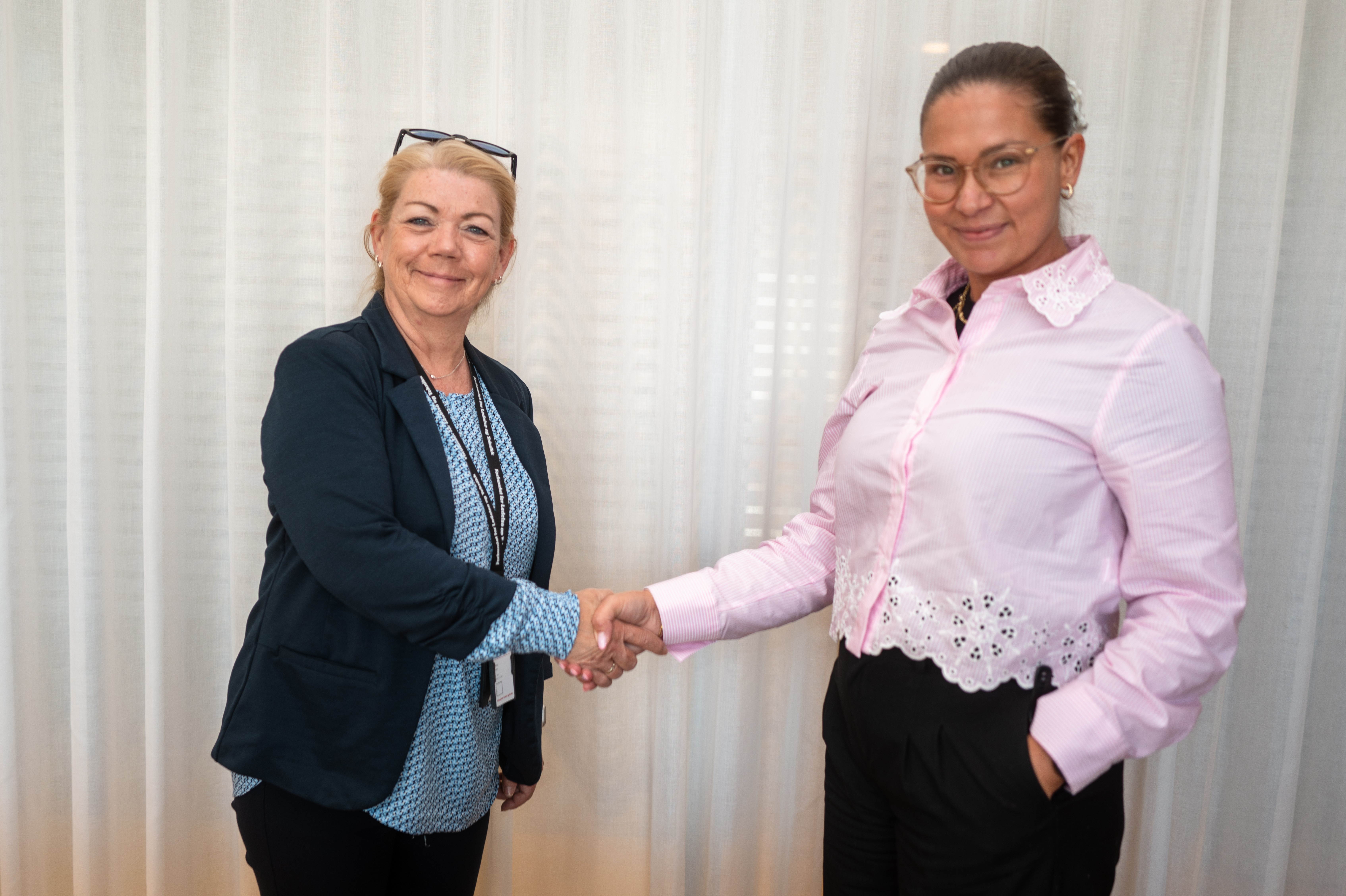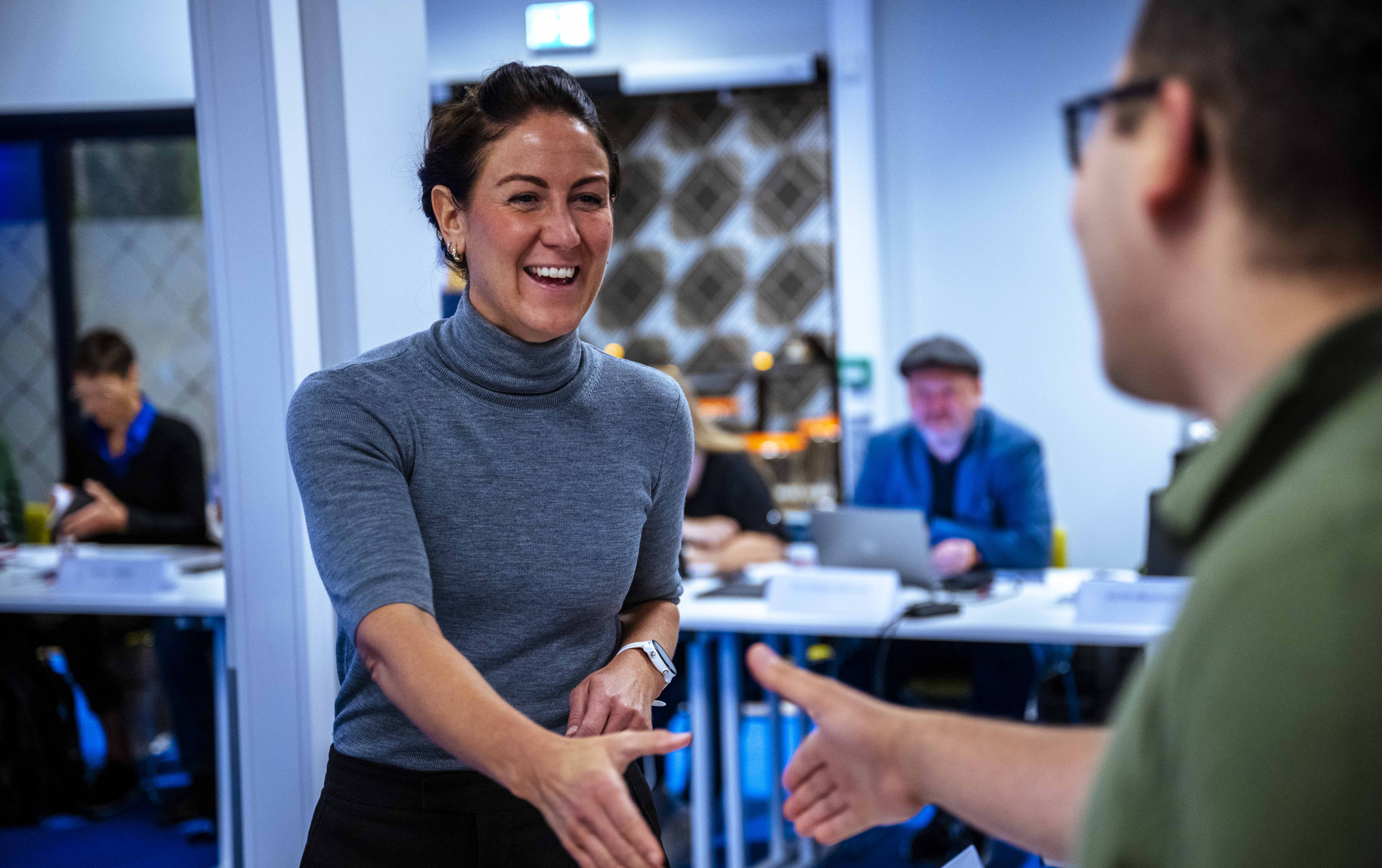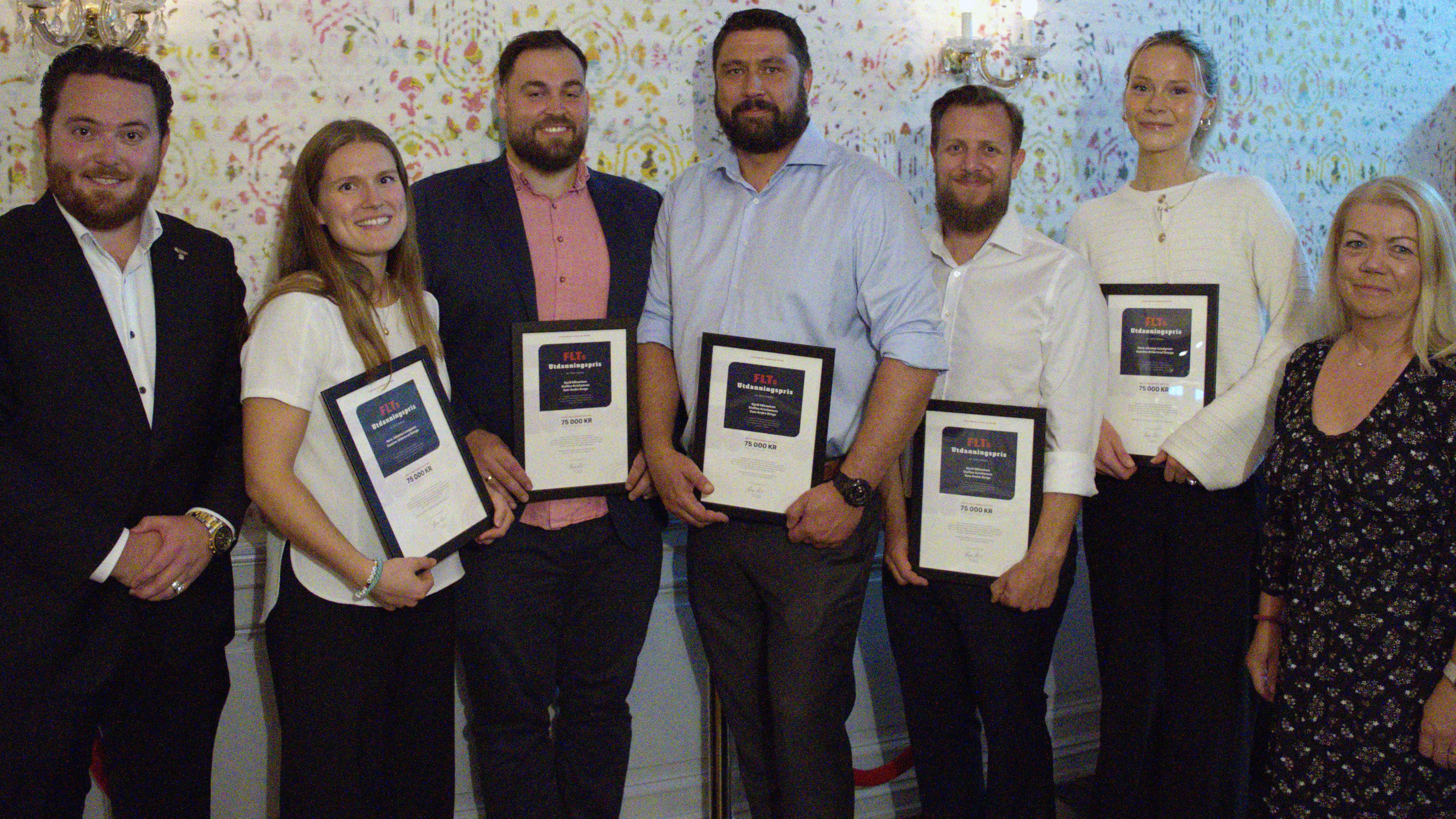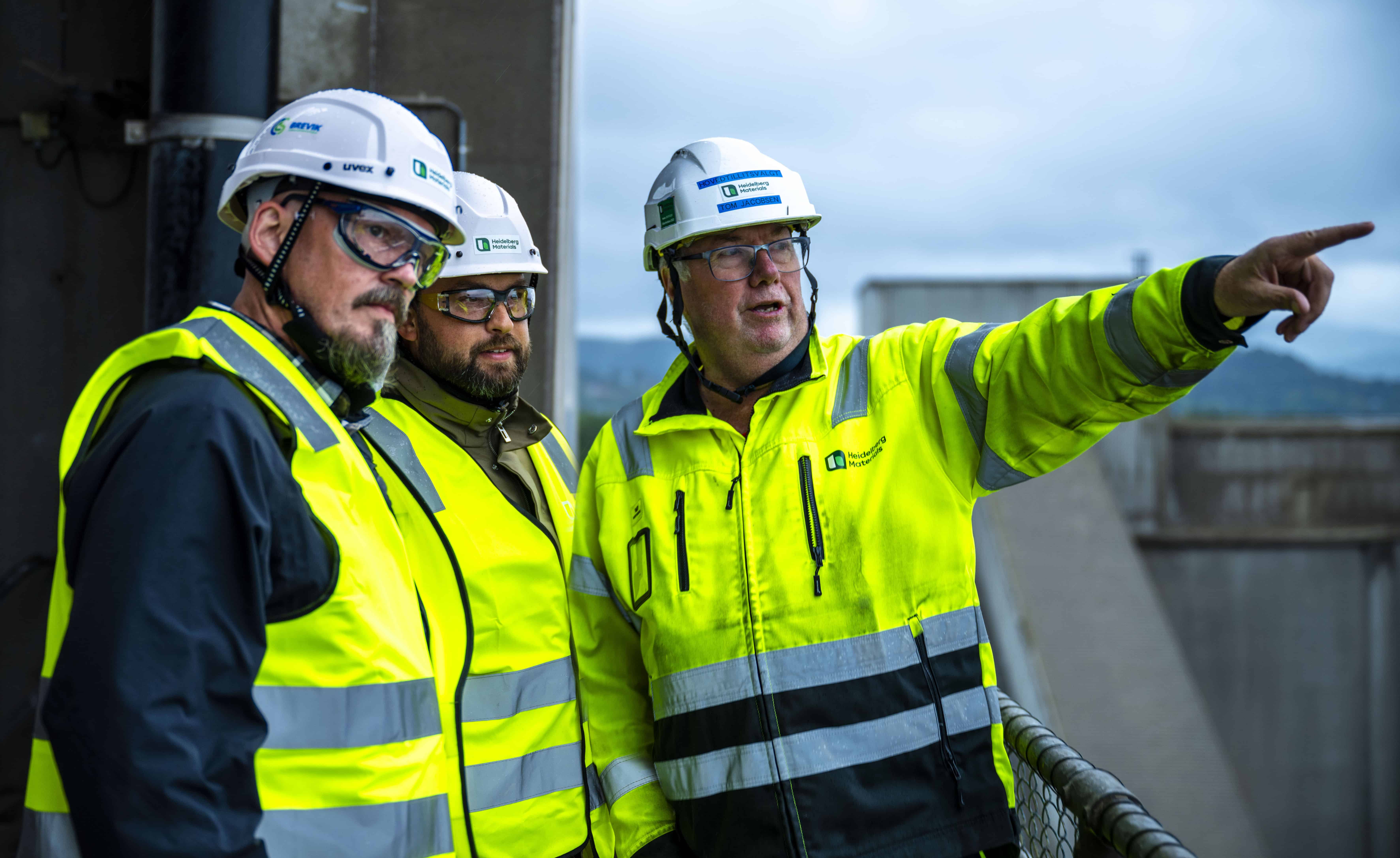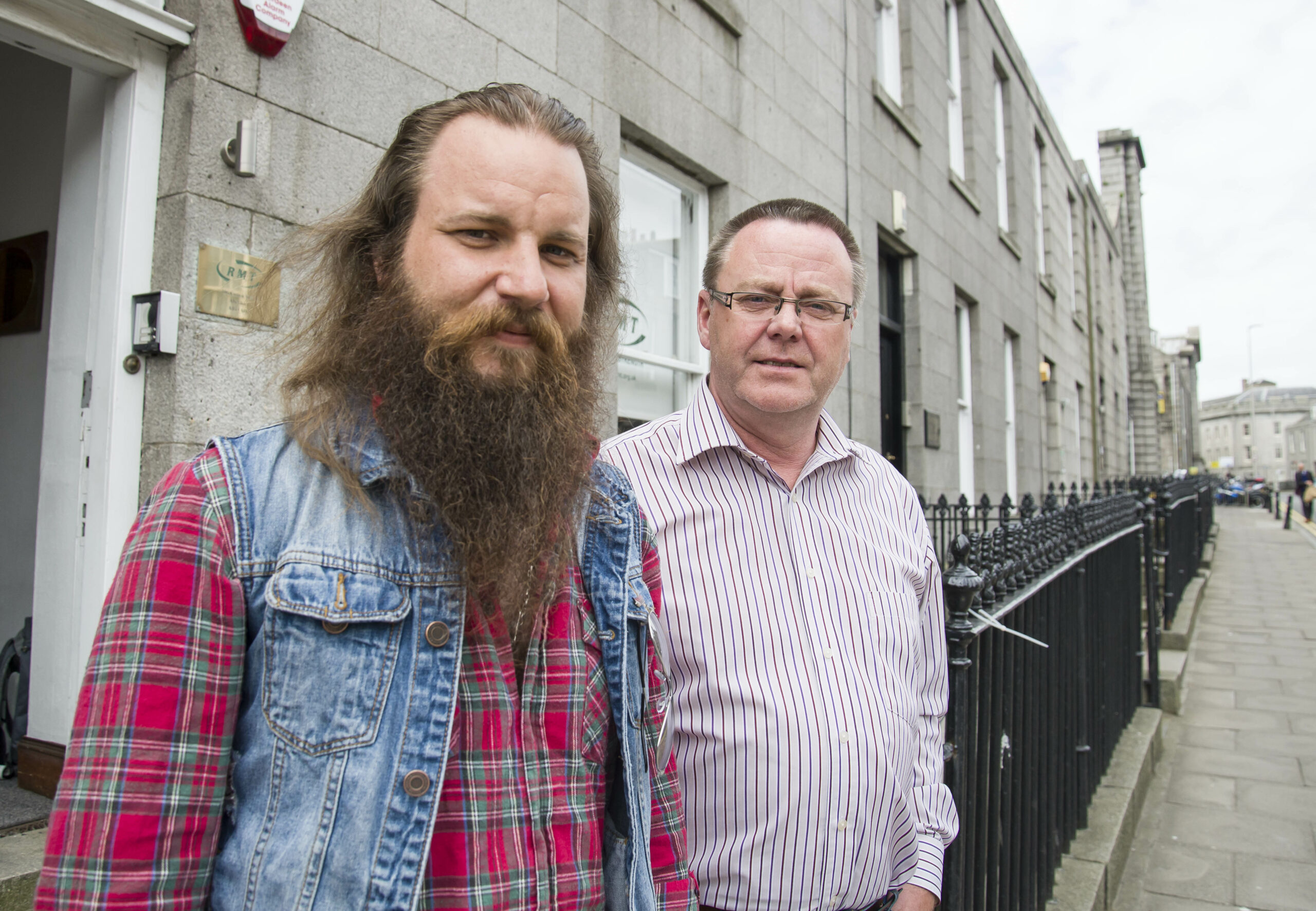
fredag 17. juni 2016
– Representing the passengers we must be admitted where the decisions that affect our members’ safety are made, says helicopter expert Henrik Solvorn Fjeldsbø in Industri Energi and Jake Molloy in British RMT.
Industri Energi and the associated British oil worker union, RMT now requires a permanent seat in the international organization HeliOffshore which was established in 2014. This organization’s main objective is to work to improve helicopter safety through the exchange of best practices, technology and common standards.
-HeliOffshore is discussing issues that are essential to helicopter safety in the North Sea, without letting trade unions to be represented. This is not acceptable. Therefore we demand that it is opened up for the Norwegian and British trade unions to get permanent representation in this body, says Henrik Fjeldsbø (Industri Energi) and Jake Molloy (RMT).
We know where the shoe pinches
The two helicopter experts state that oil worker unions in Norway and the United Kingdom must be directly involved in all consultative bodies that make decisions which affect the safety of their members.
– It is we who represent passengers. It is we who know where the shoe pinches. Oil companies, helicopter manufacturers and helicopter operators are represented in HeliOffshore. It is natural that we participate on the same terms. HeliOffshore need to hear passengers’ views, they say.
Henrik Fjeldsbø states that trade unions can provide important contributions that the operators can hardly get from elsewhere.
-We receive input from several professional groups that we represent, both in offshore and helicopter companies. Passenger experienced safety must be emphasized in the safety work. Our members can make valuable contributions to both oil companies who buy the service, helicopter companies that provide the service and manufacturers designing the helicopters.
-It is crucial that there is a proper dialogue and real confidence between the parties, says Fjeldsbø.
European safety work
Molloy and Fjeldsbø emphasizes that HeliOffshore is central in providing input to European aviation authorities (EASA).
-It has proved very difficult for trade unions to get in direct contact with EASA, which adds a lot of guidance on regulatory work in European aviation. Heli Offshore is an advisory body which is listened to. Through Heli Offshore we believe it is possible to get the user perspective into the European regulatory work.
Industri Energi and RMT will now bring the requirement for participation in HeliOffshore before the international federations, ITF and IndustriAll, representing 155 million workers in industry and transportation.
Accident reviewed
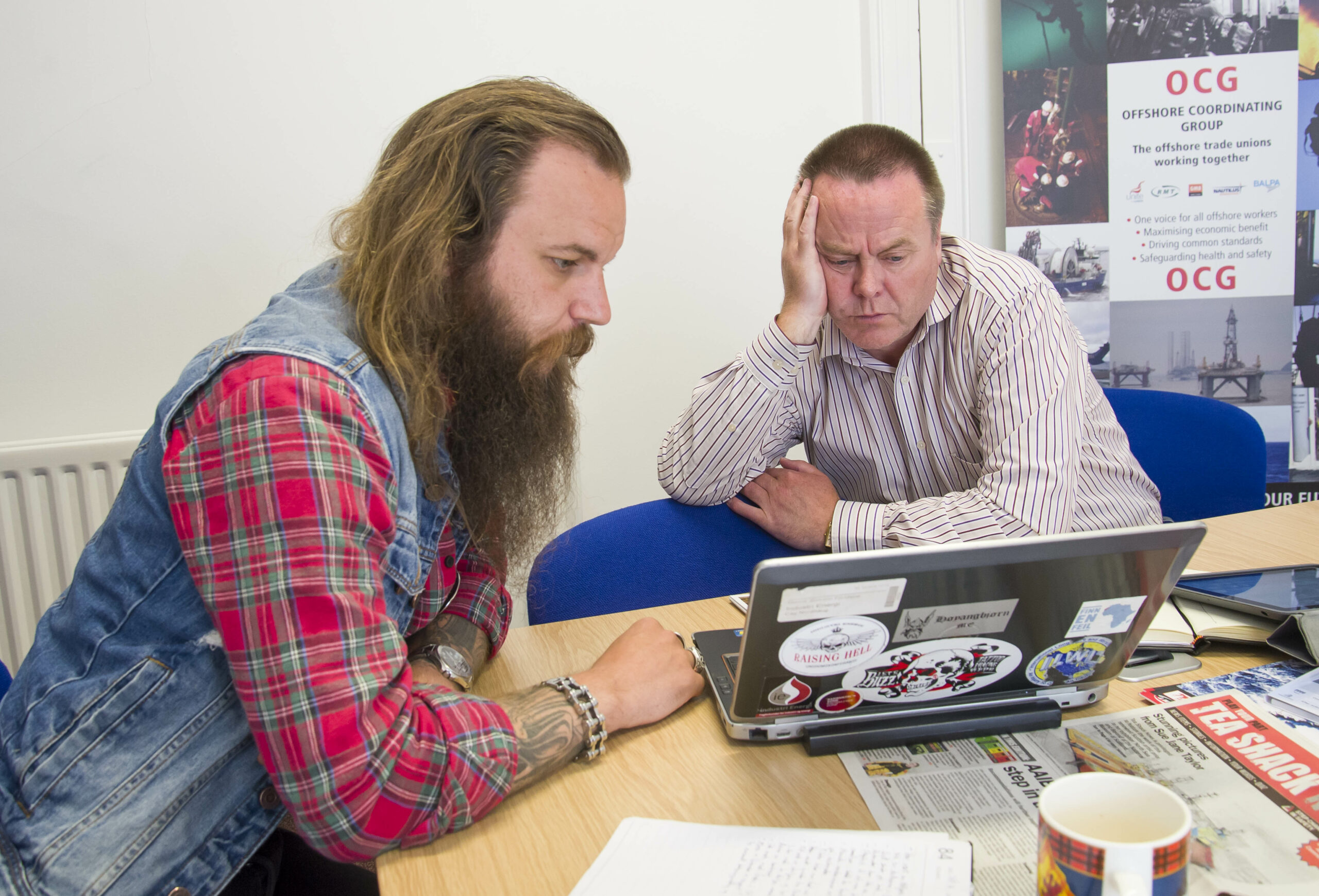
Henrik Fjeldsbø and Jake Molloy also discussed the tragic accident at Turøy April 29 when they met in Aberdeen last week.
– Helicopter accident at Turøy has affected us all. Both of us who work in the trade unions and not least our members are horrified by television images from the crash site, says Molloy.
He reports that the accident has created very strong reactions among British offshore workers.
-We have received countless responses from members after the accident. RMT has compiled the comments in a separate document which is currently at 31 pages, he informs.
Molloy believes one must avoid hasty speculation about the cause of the accident, but does not hide that the union receives lots of complaints about the helicopter type EC225 / H225 Super Puma.
-We have experienced several accidents with Super Puma helicopters on the UKCS. After the accident in Norway many oil workers are likely to refuse to go aboard these helicopters, if the copters ever come into the air again, says Molloy.
Natural reaction
Henrik Fjeldsbø believes British reactions to the accident in Norway are fully understandable.
-It is understandable that the reactions over here is much stronger than we have seen in Norway, on the basis of the helicopter accidents that have occurred in the UK and the turmoil British oil workers for a long time have experienced in relation to the Super Puma helicopters.
Fjeldsbø believes Brits are showing willingness to work proactively in relation to helicopter safety.
– The British want to see how we are working on helicopter safety and exchange experiences. I think this may contribute to even closer and more regular cooperation between Norwegian and British trade unions on helicopter safety.
– Together we can make sure that helicopter safety is top priority in both the oil companies, with the helicopter operators, authorities and internally in the unions so that helicopter safety in the North Sea Basin is a world leader, he says.
